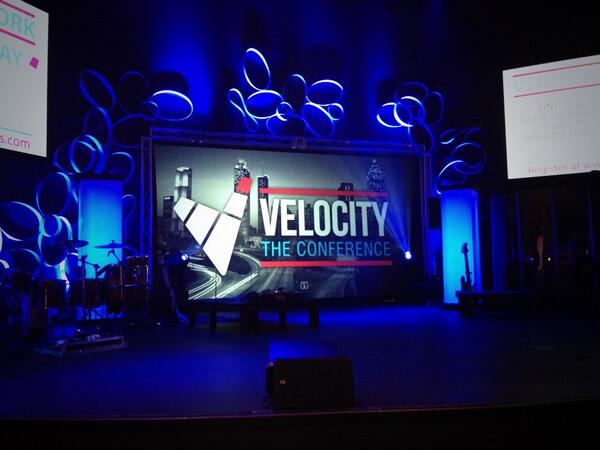Is it appropriate to address God, the Lord, as “daddy?” Many pastors and scholars say yes. This 2-part post somewhat technical. Regardless, I hope the content is helpful. My desire is for every Christian to address God in the most appropriate way.
Use of Abba in the New Testament
Abba is an Aramaic word used three times in the NT. It was used once by Jesus (Mark 14:36) and twice by the Apostle Paul (Rom 8:15; Gal 4:6).
Abba used by Jesus in Mark 14:36
The only use of abba by Jesus occurs in the Garden of Gethsemane during his greatest human turmoil. Jesus told his disciples that his soul was “deeply grieved to the point of death.” As Jesus faced the pain and separation he would experience from his father as he took the sin of the world in his body, he used a term that was not normally used to address God. He began his prayer, “ Abba,!” If abba, is taken as the Aramaic determined form with a first person singular pronominal suffix,[1] then its meaning is, “my father.” Jesus reaffirmed his relationship to his father and reminded those who heard him of the relationship they had.
Abba used by Paul in Rom 8:15 & Gal 4:6
The context of Paul’s use of abba, is very difference from the use by Jesus. His is not one of agony but of adoption into the family of God as sons. As a son, the child of God has every right a paternal child has, including the right to call God abba. The Spirit of God works in believers bringing them to this conclusion and helps them call on God in a personal way as abba. “Daddy,” as many interpret this, gives a different meaning than “my father.” The contexts of Rom 8:15 and Gal 4:6 stress the positional relationship a believer has with the father. In no way does the context of either passage give the idea of a term of endearment. The contexts and use of abba, by Jesus and Paul support taking abba, as “my father.”
God as Father in the Old Testament Hebrew
There is no determined form of the noun in Hebrew, thus abba is not attested in the MT (Masoretic Text = Hebrew). However, understanding the fatherhood of God is important to understanding Jesus’ use of abba in the NT. Thus, a brief overview of the OT concept will be given below.
Yahweh was known as father in the OT in a distinct way from the pagan understanding of “generation of being.”[2] Vangemeren shows this to be the case in fourteen occurrences.[3] He goes on to define the fatherhood of God in these texts by stating:
Yahweh is Father in his acts of electing, providing (Deut 32:6; cf. vv 9-14; Mal 1:6), redeeming (Isa 63:16), compassion (Ps 103:13-14), protecting his people (68:5, where “Father” is synonymous with “Judge”), restoring broken relationships with Israel (Jer 3:4, 19) and special covenantal relationship with David and his descendants (2 Sam 7:14; cf. 1 Chr 17:13; 22:10; 28:6; Ps 2:7; 89:26). Israel confessed that Yahweh is their Father while maintaining the radical contrast between him and the gods of the nations.[4]
Yahweh provided and revealed himself distinctly as a father to his people and they were to know him as such. Jesus does not contribute something new to the concept of father from the OT; rather he “restored the OT teaching of Yahweh’s love, forgiveness, readiness to listen to prayer, and fatherly concern.”[5] Not only did Jesus give this example to his followers, but he also gave his followers access to this restored relationship.
God was not referred to in the OT as father often. However, although not commonly used, God’s people understood him as a father. Jesus understood God as father and was never rebuked for using the terms father or abba, as direct, personal address to God. If the use of abba, as such, were “disrespectful” and “irreverent,” as argued by Jeremias, the gospel writers probably would have recorded such a response.[6] However, neither Jesus’ nor Paul’s use of abba, were questioned or rebuked.
The influence of Joachim Jeremias
Jeremias’ work, The Prayers of Jesus, written in 1967, has been one of most influential books written regarding the use of abba, in the NT. Almost every source referred to here quotes him. He begins his section, “The Address ‘Dear Father’ (abba),” with a brief overview of the history of God being invoked as father. He shows that in the ancient Orient, deity is addressed as father, citing Pritchard on a hymn from Ur to the moon god Sin.[7] Then, turning to the OT he shows that God is only referred to as father fourteen times. His conclusion based on the OT use of this term for God is this; “Can there be any deeper dimension to the term ‘father’ than this compulsive, forgiving mercy which is beyond comprehension?”[8] He uses this to set up his discussion of abba and its use by Jesus. Jeremias believes that abba is the term used by Jesus every time the vocative “O Father” is used in the Gospels. But then he explains how the term abba is never found in the prayer literature of ancient Judaism.[9] He says the church fathers Chrysostom, Theodore of Mopsuestia, and Theodoret of Cyrrhus, who probably spoke Aramaic, “testify unanimously that abba was the address of the small child to his father.”[10] Jeremias seems to lean heavily on this evidence. However, the fact that small children used this term to address their fathers does not prove it to be a childish term. Could the child be using an adult term? It is broadly accepted that abba was not only used by young children but also by adult children.[11]
Jeremias does say that in Jesus’ day abba was no longer restricted to children’s talk but used by grown-up sons and daughters. Even though he makes this admission, his conclusion is that Jesus’ use of the term for his heavenly father in a time when no Jew would have addressed God with such a term showed that Jesus “spoke with God as a child speaks with his father.”[12] The problem with this view is that one could say Jesus spoke with God as an adult child speaks to his father. It is unfortunate that so many have followed Jeremias, as will be seen below. He is one of, if not the major reason, so many take abba as “daddy.” This illustrates the need for a fresh study of the meaning of abba, for understanding its use in the NT.
Part Two tomorrow!
Obviously I’m arguing that Abba should NOT be translated daddy. God should not be addressed as daddy. Tomorrow I will give the use of abba by commentators, in lexicons, dictionaries, and encyclopedias. Then a final conclusion and application given.
QUESTION: Have you heard a pastor/teacher refer to God as daddy? If so, how does referring to God that way make you feel?







